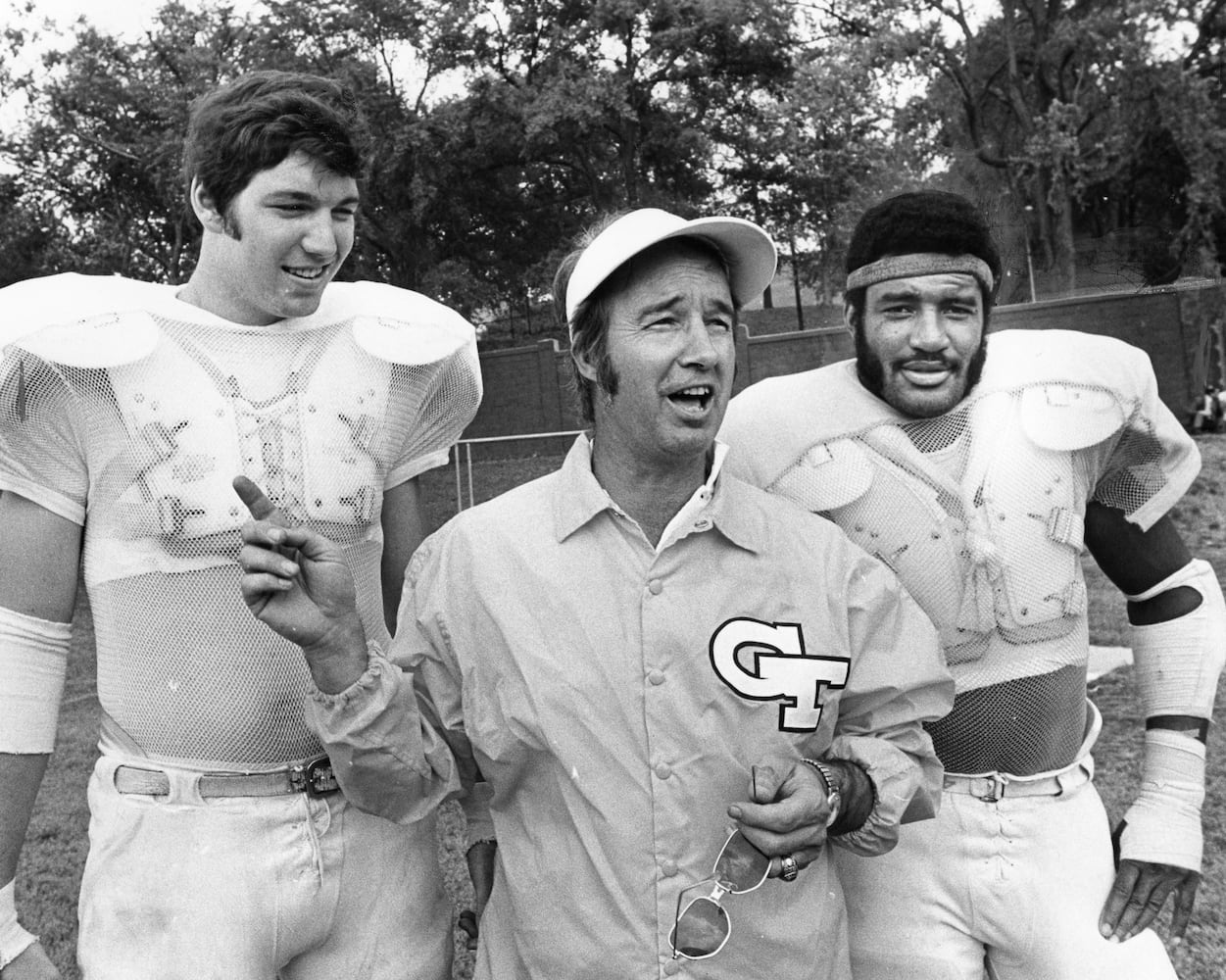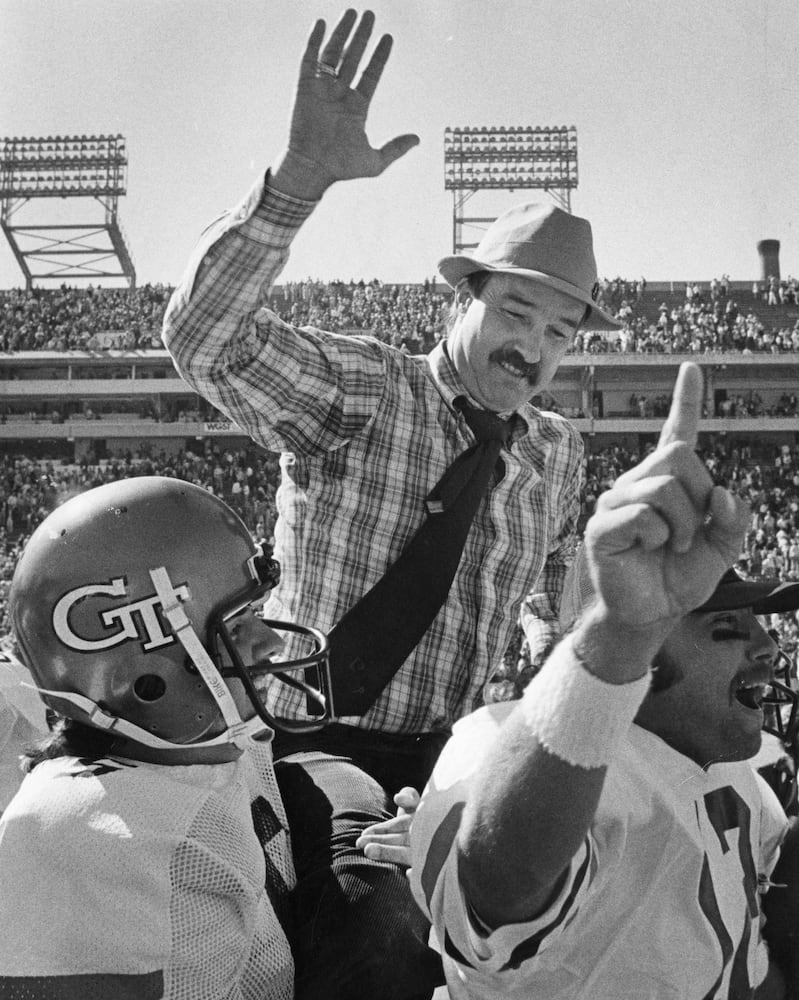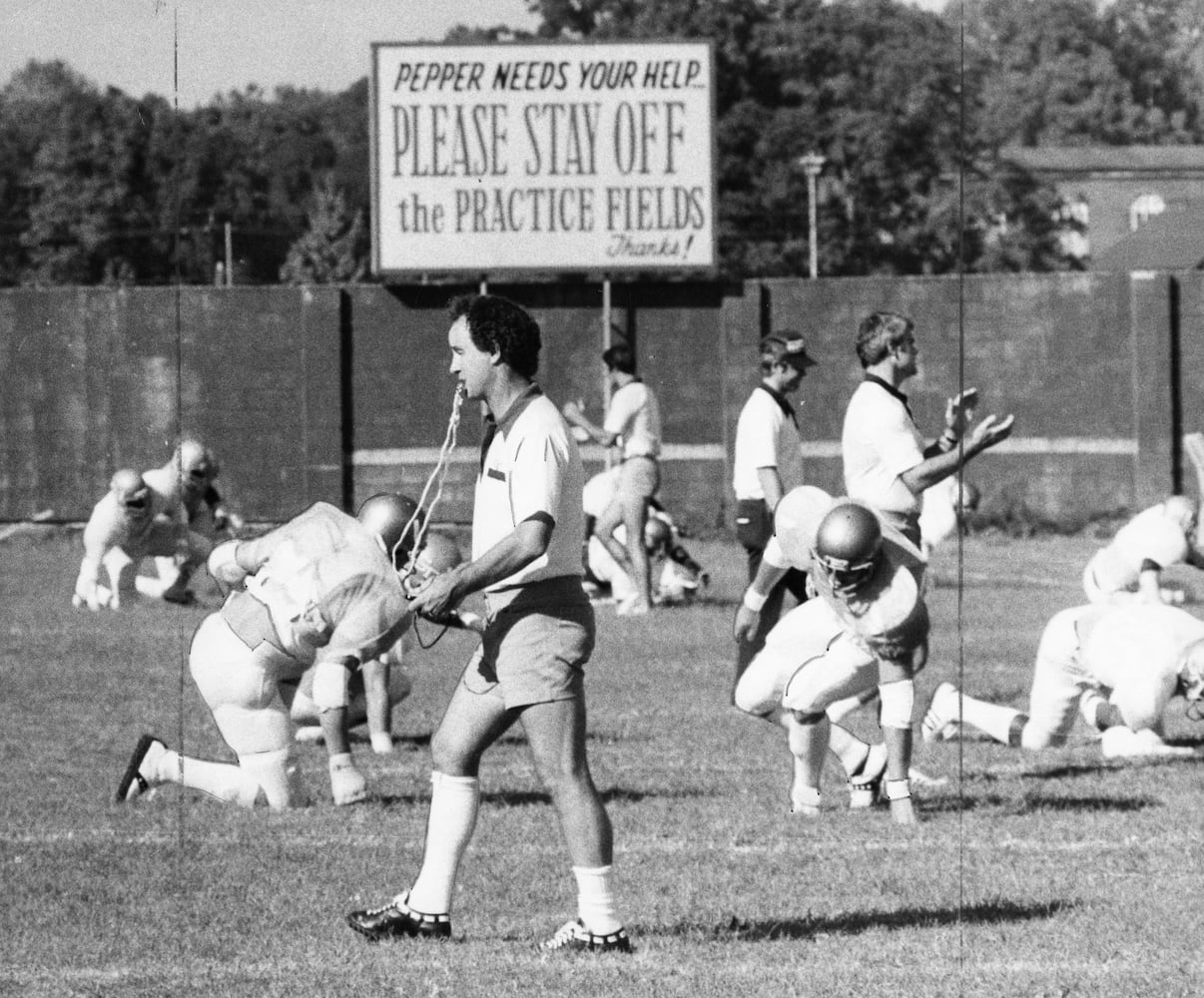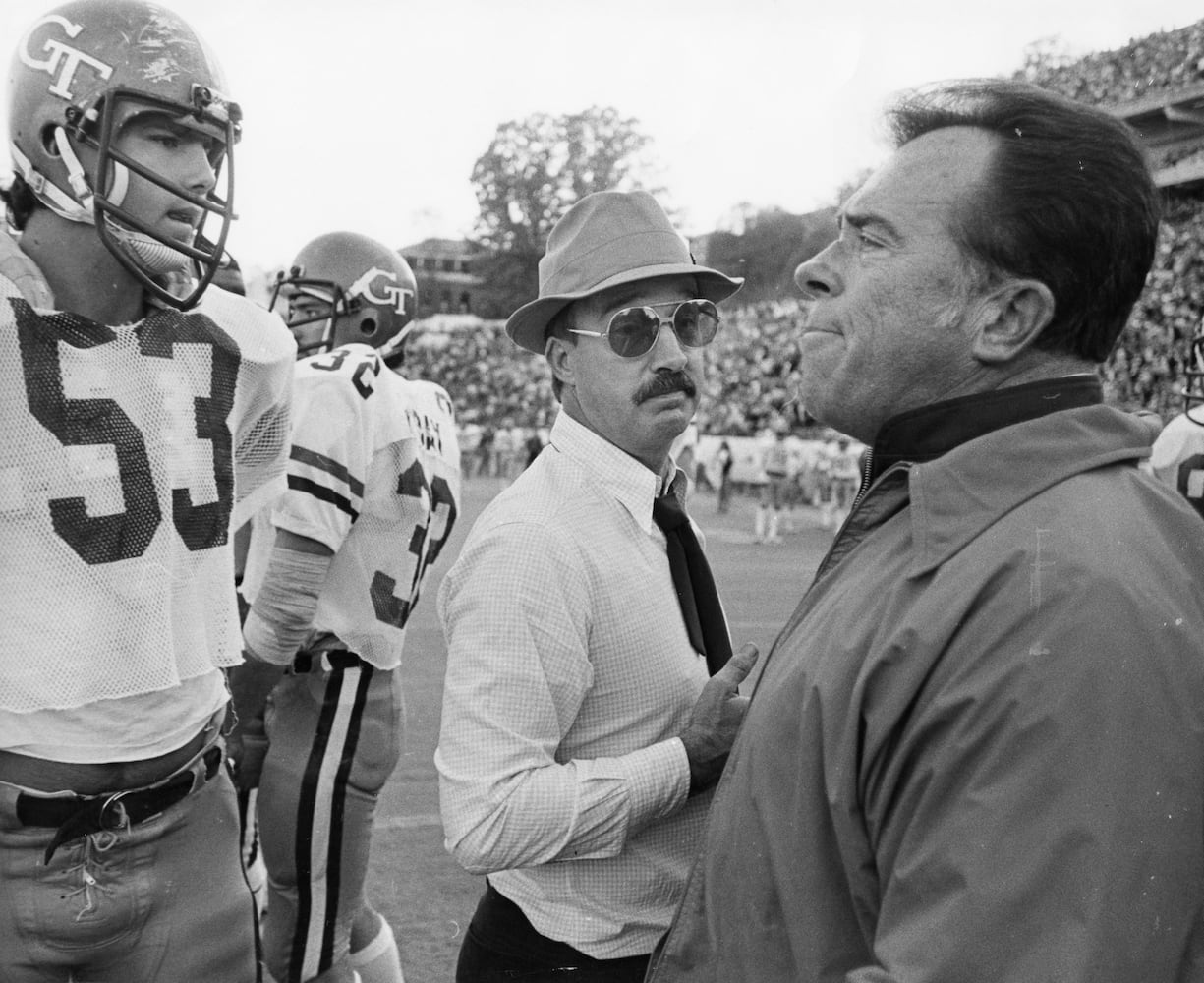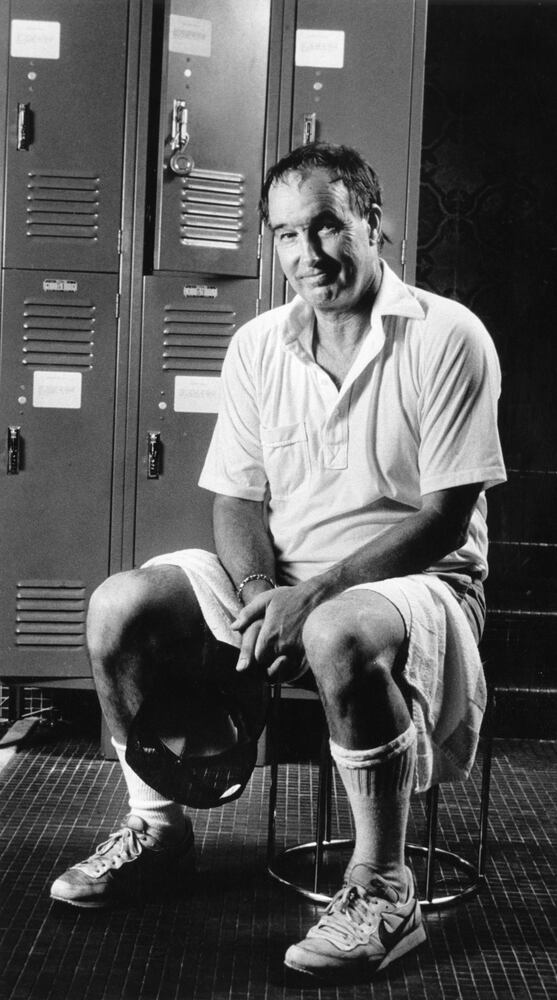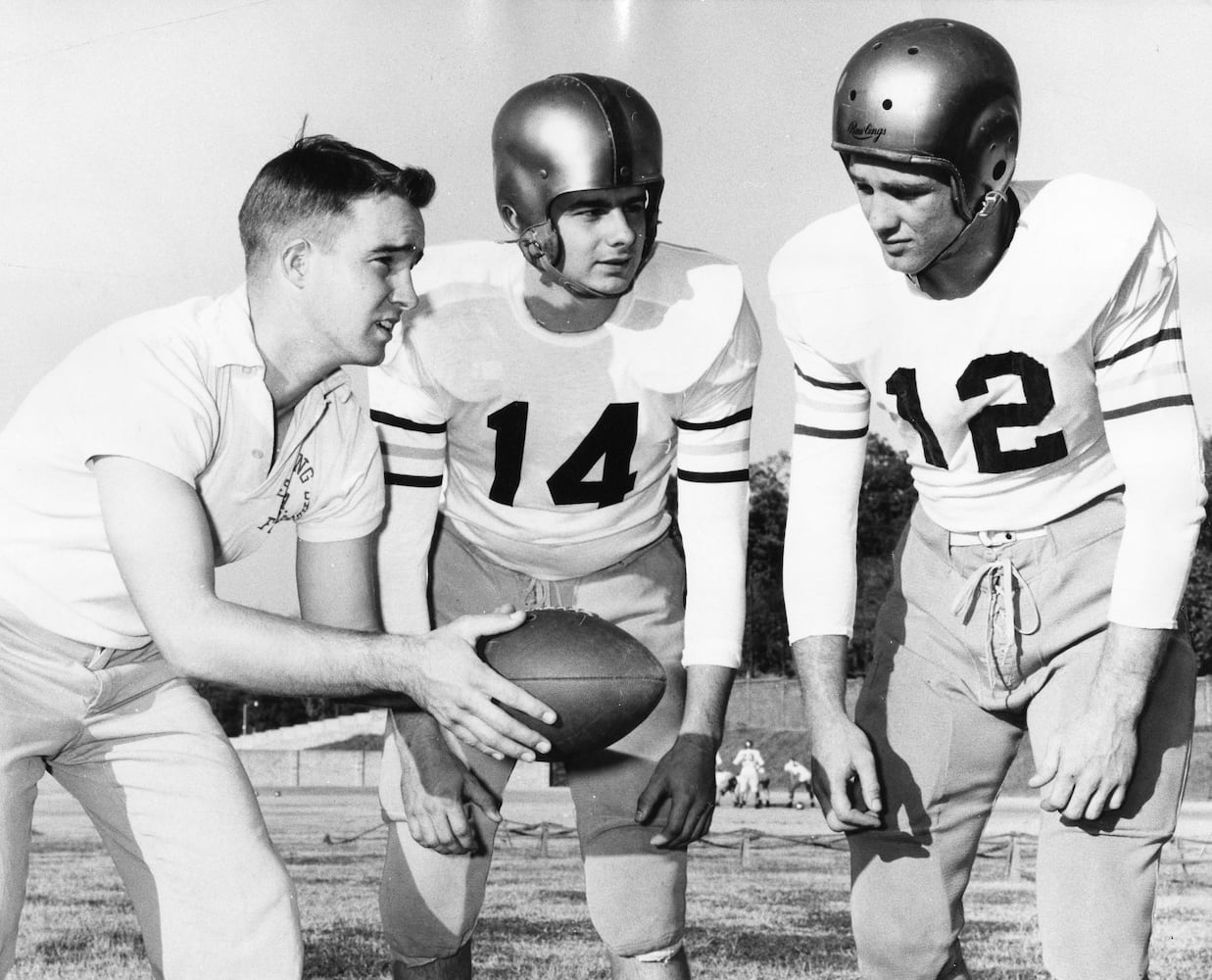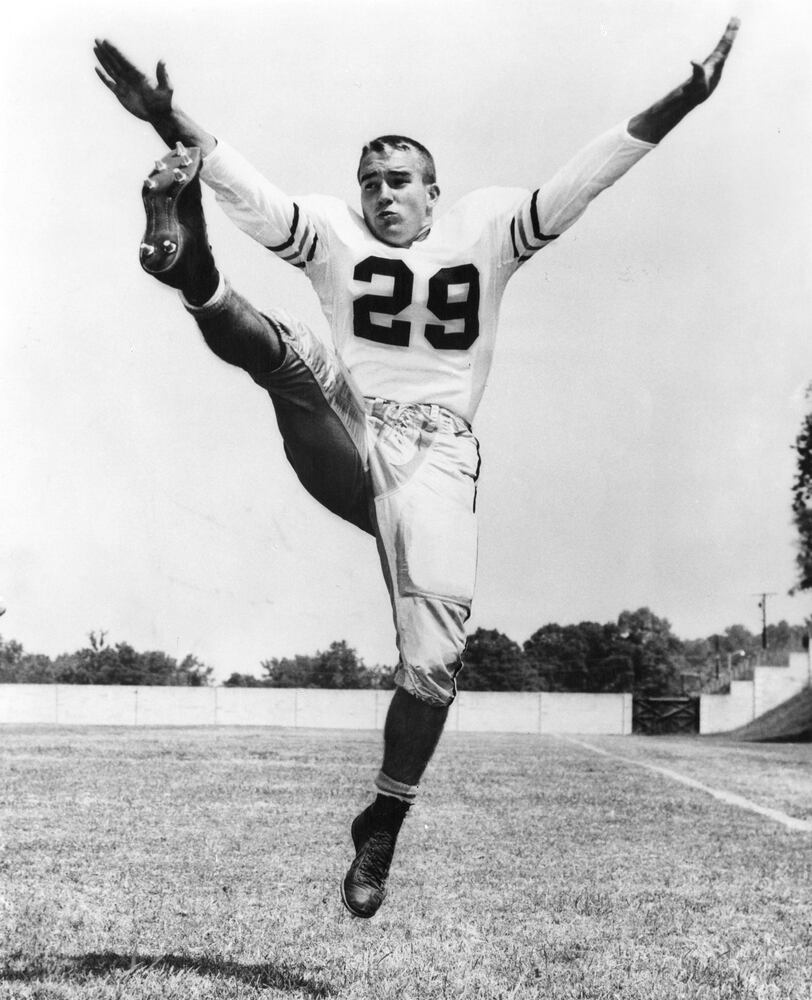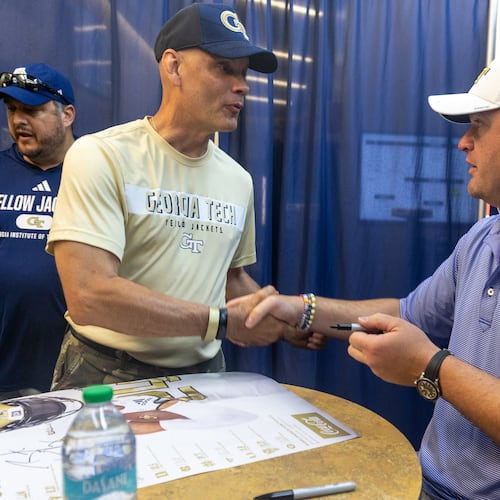As a high school quarterback, he talked his way into a scholarship to Georgia Tech, as the story goes. Pepper Rodgers lived up to the scholarship, playing a key role for one of Tech’s all-time teams, and went on to achieve considerable success as a coach, including at his alma mater.
The quarterback of Georgia Tech’s 1952 national championship team, the head coach for one of the school’s most memorable upsets and a man renowned for his free spirit, Pepper Rodgers died Thursday at the age of 88, according to his alma mater.
Rodgers was taken off his ventilator Thursday after suffering complications caused by a ruptured artery in his head when he fell in the bathroom in his home in Reston, Va., Rodgers’ wife Janet Lake Livingston told the AJC.
Beyond his football exploits, Rodgers was married for 45 years, wrote a novel and clearly knew how to enjoy himself.
“My life has been a lot of fun,” Rodgers told The Atlanta Journal-Constitution last December.
» MORE: Social media reacts to the death of Pepper Rodgers
A coach easily underestimated for his flamboyance and easygoing manner, Rodgers built winning teams at Kansas, UCLA and Tech. He remains, in fact, the last Kansas coach to win a conference championship, in 1968.
Born in Atlanta on Oct. 8, 1931, Franklin Cullen Rodgers Jr. was set on a path to coaching in high school, where he was a three-sport star at Brown High, now a middle school in Atlanta’s West End. When Tech assistant coach Ray Graves came to the school to sign Rodgers’ teammates off his powerhouse squad, Rodgers offered to come to Tech on a “city scholarship,” in which he lived at home during his freshman season. Graves and coach Bobby Dodd agreed.
In his three seasons on the varsity (1951-53), Tech ran up a record of 32-2-3, winning two SEC championships, two Orange Bowls and one Sugar Bowl. Playing quarterback and kicking, Rodgers led the Jackets to a 12-0 record and a share of the national championship in 1952. Against Ole Miss in the 1953 Sugar Bowl, he threw a touchdown pass, kicked a field goal and added three extra points. In the 1954 Sugar Bowl, he led a 42-19 rout of West Virginia with three touchdown passes and was named game MVP.
Rodgers was recognized for succeeding with savvy more than athletic ability. The late Furman Bisher once wrote for the Atlanta Constitution that Rodgers “rode to the rescue on a stubby little arm and a satchelful of confidence.”
After Tech, Rodgers served in an Air Force officer training program and became a pilot. He also got into coaching while training and later climbed the ladder from Air Force to Florida to UCLA.
He became head coach at Kansas in 1967, winning a share of the Big Eight in his second season. He was twice named conference coach of the year. At UCLA, he led the Bruins to a combined record of 17-5 in his final two seasons (1972-73), including a win over two-time defending national champion Nebraska in the 1972 season opener that ended the Cornhuskers’ 32-game unbeaten streak. He was twice the Pac-8 coach of the year.
That led to his return to Tech. In six years, running the wishbone offense, he recorded four winning seasons. He was twice the Southern Independent coach of the year.
“We were not in a conference and the facilities hadn’t changed since I had played,” Rodgers said in an AJC interview in 2015. “I knew how hard it was going to be to win there. But that had nothing to do with taking the job. It was about my love for Tech.”
Among his 34 wins (against 31 losses and two ties) at Tech was a 23-14 upset of No. 11 Notre Dame in 1976, in which the Jackets won without freshman quarterback Gary Lanier attempting a pass.
“He ran the option to perfection, and we had two great backs,” Rodgers said. “We had Eddie Lee Ivery and David Sims.”
Among his assistant coaching hires along the way: Terry Donahue at Kansas and Steve Spurrier at Tech. Both are in the College Football Hall of Fame. Rodgers had coached Spurrier as an assistant with the Gators.
» ALSO: Read and sign the online guestbook for Pepper Rodgers
“Steve was one of the great ones,” Rodgers said last December. “He was always interesting, he was always fun, and I’ve been friends with Steve for a long, long time.”
Rodgers said that he looked for people that could do the job and were fun to be with after the game.
“That’s the way I always saw life in coaching,” he said.
Keeping a light approach was integral. On his first day at Tech, he rode a motorcycle and wore his hair in a perm. He was known for doing somersaults as he led his teams on the field.
“I used to tell reporters after games, ‘Look boys, the four most important things are to have a fast back, a big line during football games and after 6 (p.m.), a beautiful woman and a cold beer,’” Rodgers said in a 2015 interview. “Well, it’s after 6, so I am going to get a cold beer.’’
Rodgers’ insouciant manner likely didn’t help him with buttoned-down alumni at Tech, and he was fired after a 4-6-1 season in 1979. But among the players he recruited in his final year was a running back from Ontario named Todd Stansbury, now Tech’s athletic director. Stansbury said in a statement that he was “devastated” to learn of Rodgers’ death.
“On a personal note, he was the coach that recruited me to Georgia Tech, and I am eternally grateful to him for bringing me here,” Stansbury said in the statement. “If it weren’t for Pepper, I would have never had the opportunity to live out my dreams as a Tech student, football player, alumnus and, now, athletics director. He has also been a mentor and friend throughout my professional career and I will miss him greatly.”
After Tech, Rodgers wrote a novel (“Fourth and Long Gone,” about the shenanigans of two college football coaches recruiting the same star running back), coached in the USFL, tried to bring an NFL team to Memphis and served in the front office of the Washington Redskins. He retired in 2004 and remained in Reston. He is survived by his wife and four children from his first marriage, sons Rick, Kyle and Kelly Rodgers and daughter Terri Cannon.
About the Author
Keep Reading
The Latest
Featured
